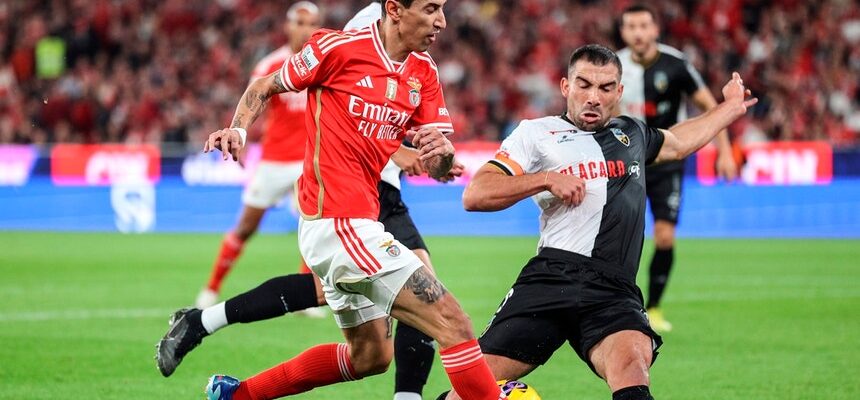Following a hard-fought 2-1 victory against Alverca, Portuguese football giants Benfica find themselves not celebrating an undisputed win, but rather questioning the very fabric of officiating standards in the I Liga. Mário Branco, the club`s General Director for Football, has issued a firm statement, articulating Benfica`s growing concerns regarding what they perceive as an “overly rigorous” application of rules by match officials.
The Alverca Encounter: A Catalyst for Concern
The match against Alverca, while ending in Benfica`s favor, was far from straightforward. The Eagles, already grappling with the residual fatigue from a demanding Champions League fixture, found themselves reduced to ten men after midfielder Amar Dedic received two yellow cards, leading to an early exit. This particular dismissal ignited a fuse within the Benfica camp, prompting both coach Bruno Lage and now Mário Branco to speak out.
“We had a complicated match, the pitch left a little to be desired, similar to what happened in Amadora. And from the moment we were reduced to ten elements, the fatigue from the Champions League game was noticeable,” Branco initially commented, setting the stage for his deeper critique.
The “Rigorous” Criteria: Where Is the Consistency?
Branco`s primary contention revolves around the perceived inconsistency and severity of refereeing decisions. He pointedly remarked:
“We will be attentive to these refereeing criteria. We took the trouble to be at the Football City at the beginning of the season, and we were not made aware of the rigorous criteria used in this match. We received a yellow card every two fouls; that seems extremely rigorous to me.”
This statement highlights a fundamental issue often debated in professional football: the clarity and consistent application of the Laws of the Game. If clubs are operating under one set of expectations derived from pre-season briefings, only to encounter a different, more stringent interpretation on the pitch, it creates a palpable sense of unfairness and unpredictability. One might even muse that the referees possess a secret handbook, revised weekly, with criteria known only to them. Or perhaps, the footballing gods simply enjoy a good laugh at the expense of bewildered club directors.
Beyond a Single Incident: A Systemic Plea
Benfica`s stance transcends a mere complaint about a single red card. It`s a broader appeal for transparency and a standardized approach to officiating across the league. In an era where VAR technology aims to eliminate “clear and obvious errors,” the subjective interpretation of what constitutes a yellow-card offense remains a contentious area. The suggestion that a yellow card is issued “every two fouls” paints a picture of almost robotic, non-contextual decision-making, which can severely impact the flow and competitiveness of a match, especially for teams managing demanding European schedules.
The fatigue from a Champions League encounter is a legitimate factor in domestic performance. To then face what is interpreted as an overly punitive officiating style adds another layer of complexity for teams like Benfica, who aim to compete at the highest levels both domestically and internationally. It raises questions about player management, tactical adjustments, and ultimately, the integrity of results.
“We Will Be Attentive”: What Comes Next?
Mário Branco`s promise that Benfica will “be attentive to these criteria” is more than a casual remark; it`s a veiled warning. It suggests increased scrutiny, potential formal grievances, and a persistent push for dialogue with the Portuguese Football Federation and refereeing bodies. This proactive stance aims to ensure that officiating does not become an arbitrary lottery but rather a consistent, predictable, and fair element of the game.
In the grand theater of Portuguese football, where rivalries run deep and every decision is dissected with forensic precision, Benfica`s call for clarity resonates loudly. The beautiful game, after all, thrives on fair competition, and any perceived deviation from this principle will inevitably draw the attention of its biggest protagonists.









